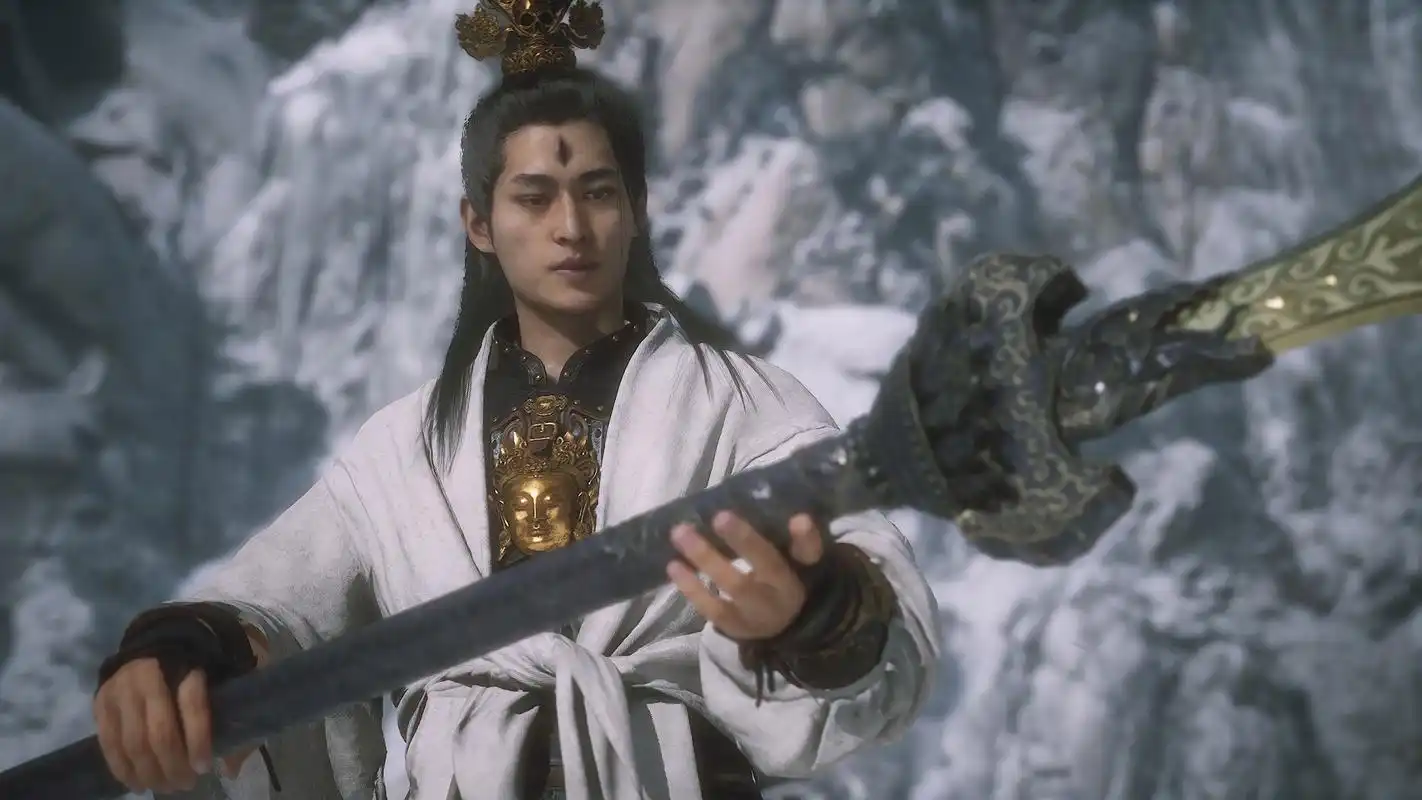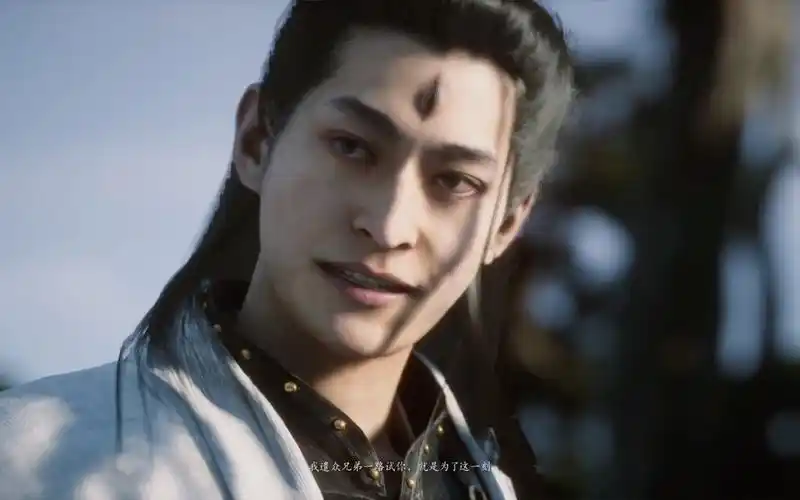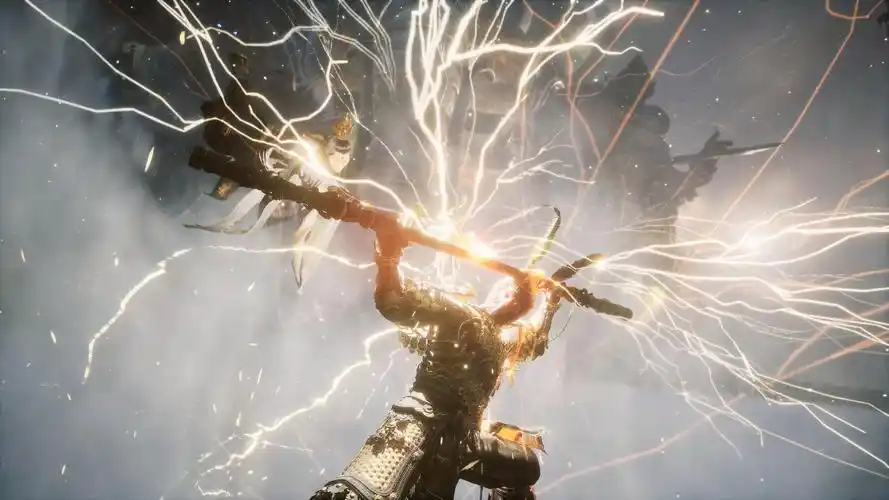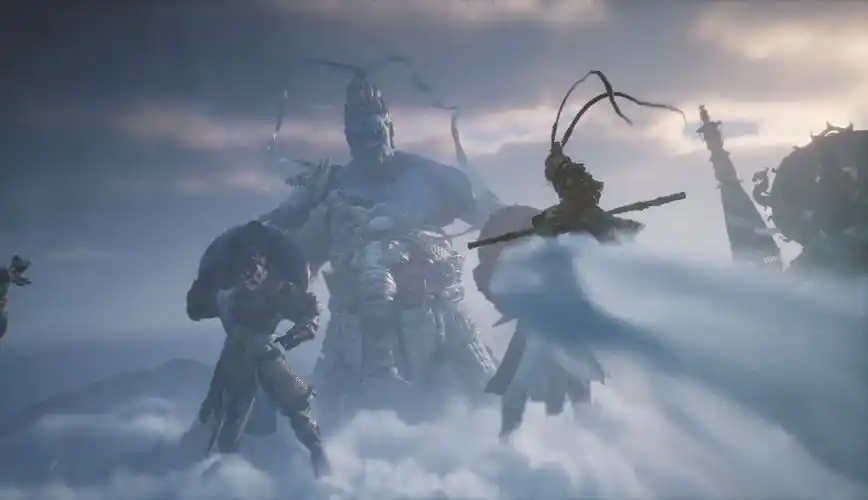In the prologue of the game, Erlang Shen appears as the antagonist, but later revelations show that he actually helped the Destined One significantly. What accounts for the stark contrast in Erlang Shen’s character?

Erlang Shen has a noble background. His mother is the sister of the Jade Emperor, and because of her love for a mortal, she violated celestial laws. As a result, the Jade Emperor suppressed Erlang Shen’s mother under Peach Mountain. Upon learning about his mother’s fate, Erlang Shen resolved to rescue her. He became a disciple of the Jade Cauldron True Man and trained diligently, ultimately mastering various supernatural powers. During his quest to save his mother, Erlang Shen engaged in fierce battles with the Heavenly Emperor. Armed with his Three-pointed Double-edged blade and immense strength, he successfully split open Peach Mountain and rescued his mother, staging a dramatic family saga (a similar situation later unfolds with his nephew, Chenxiang). Although he ultimately submitted to the Celestial Court, he thereafter followed the Jade Emperor’s commands only superficially. This explains why Erlang Shen has a dual relationship with the Heavenly Court.

In the original “Journey to the West,” Sun Wukong and Erlang Shen have a relatively good relationship, which leads them to a tacit understanding that is opaque to outsiders. To clarify this, we must revisit their interactions in “Journey to the West.” Sun Wukong encountered Erlang Shen twice: once during the Havoc in Heaven, where he was captured by Erlang Shen with the help of Taishang Laojun and subsequently thrown into Lord Lao’s Furnace. The second encounter occurred during the journey to retrieve the scriptures, where Sun Wukong sent Zhu Bajie to seek Erlang Shen’s aid, and together they drove away the Nine-headed Insect. Throughout this period, Sun Wukong’s feelings toward Erlang Shen underwent significant changes.

Initially, after being captured by Erlang Shen, Sun Wukong didn’t harbor any evident hatred. Instead, when faced with monsters on their journey, he mentioned having previously been defeated by Erlang Shen, speaking with a hint of respect. Following the battle at Mount Huaguo, it was not Erlang Shen himself who carried out the search but rather his brothers, the Six Saints of Mount Mei, who showed notable leniency towards Sun Wukong and spared many of his monkey kin. Erlang Shen sent the Six Saints to search the mountains as a means of maintaining the authority of the Celestial Court, all while secretly giving Sun Wukong a chance to escape unnoticed by the Court. Likewise, when the Celestial Court and Lingshan united to eliminate Sun Wukong, he emphasized that only he was worthy of fighting Sun Wukong and insisted on a one-on-one duel, telling others not to intervene. Subsequently, he even created an opening that allowed Sun Wukong to defeat the Four Heavenly Kings, choosing to retreat into Mount Huaguo immediately thereafter.
It was precisely during this brief moment, unnoticed by others, that Erlang Shen and Sun Wukong reached an agreement: Sun Wukong would exchange his own death for the freedom of the next Great Sage. If Erlang Shen were not a trustworthy individual, Sun Wukong would never have entrusted him with this singular opportunity and his memories.

This also explains why, during the final battle, he insisted on a one-on-one fight with Sun Wukong, subsequently creating a deliberate opening for the monkey to carry out his plan. Throughout the entire story, Erlang Shen’s character is far more complex than it initially appears. He is not only the god of war in the Heaven realm but also resembles a wise man seeking balance amid the power struggles. The game cleverly reinterprets the relationship between Sun Wukong and Erlang Shen, allowing players to experience a deeper human tension through the story’s twists and turns.
After obtaining the true scriptures, Sun Wukong comes to realize that even if he becomes a Buddha, the Golden Hoop will not be removed. Just as depicted in the animation of the second episode, being a guai means that even without committing wrongdoing, the mere ability to do so prohibits freedom. This is what Sun Wukong conveyed to the Bull King; individuals like them, who possess great strength and innate rebelliousness, are seen as a threat by the Celestial Court and Lingshan, even if they are merely alive.
Moreover, Sun Wukong also witnessed the wickedness of the Celestial Court and Lingshan as they devoured lives. Thus, he decided to abandon his body bound by the band using the method of dismemberment, releasing the six roots of his being, and allowing the Destined One to gather them up once more to achieve resurrection. The Celestial Court and Lingshan realized that this Stone Monkey, born of heaven and earth, is neither born nor destroyed and cannot be eliminated by sheer strength. If left unchecked, who knows when he might leap out from some corner or unknown stone again? This was a result they wanted to avoid. Therefore, it made more sense to play along with Sun Wukong’s idea and initiate the Destined One plan. Since Sun Wukong, even while bound, remained ungovernable, they would select a Destined One to inherit his five roots without the sixth, that is, consciousness and memory, continuing to wear the band as a hand for the Celestial Court and Lingshan.
